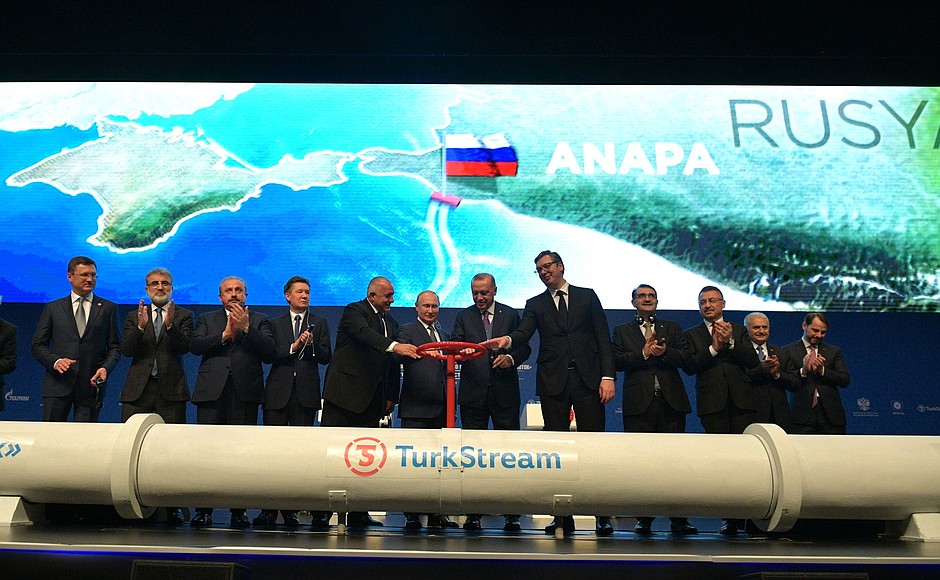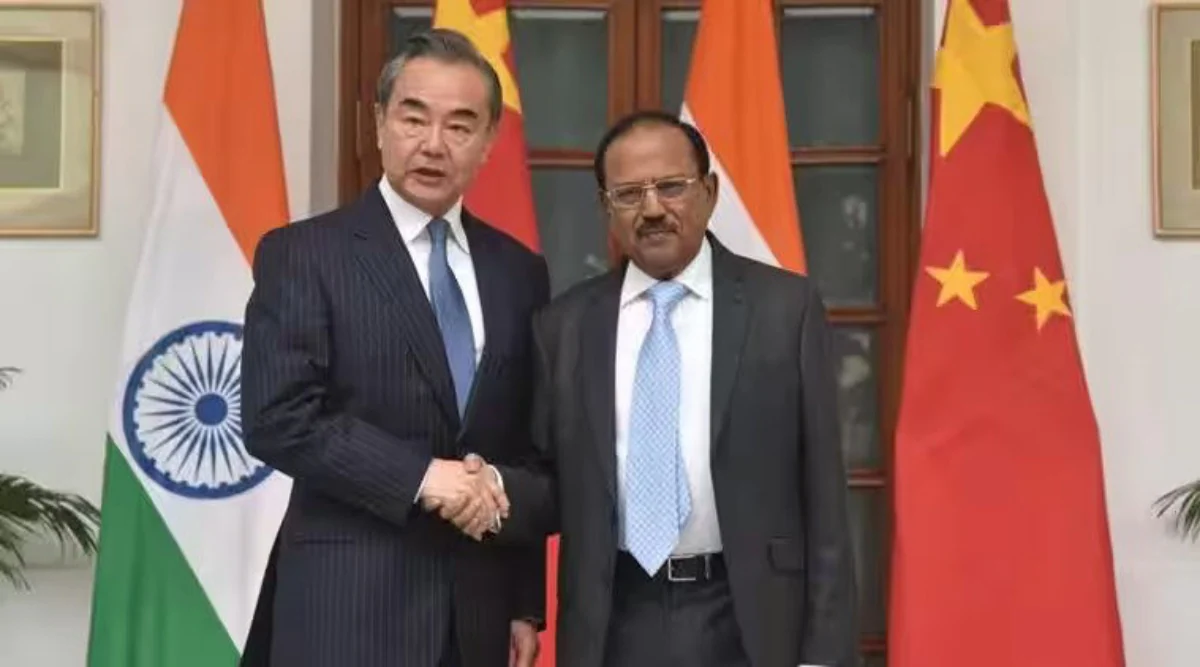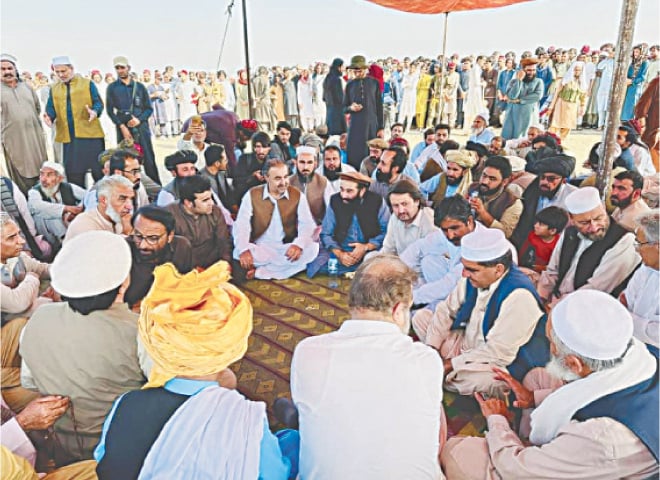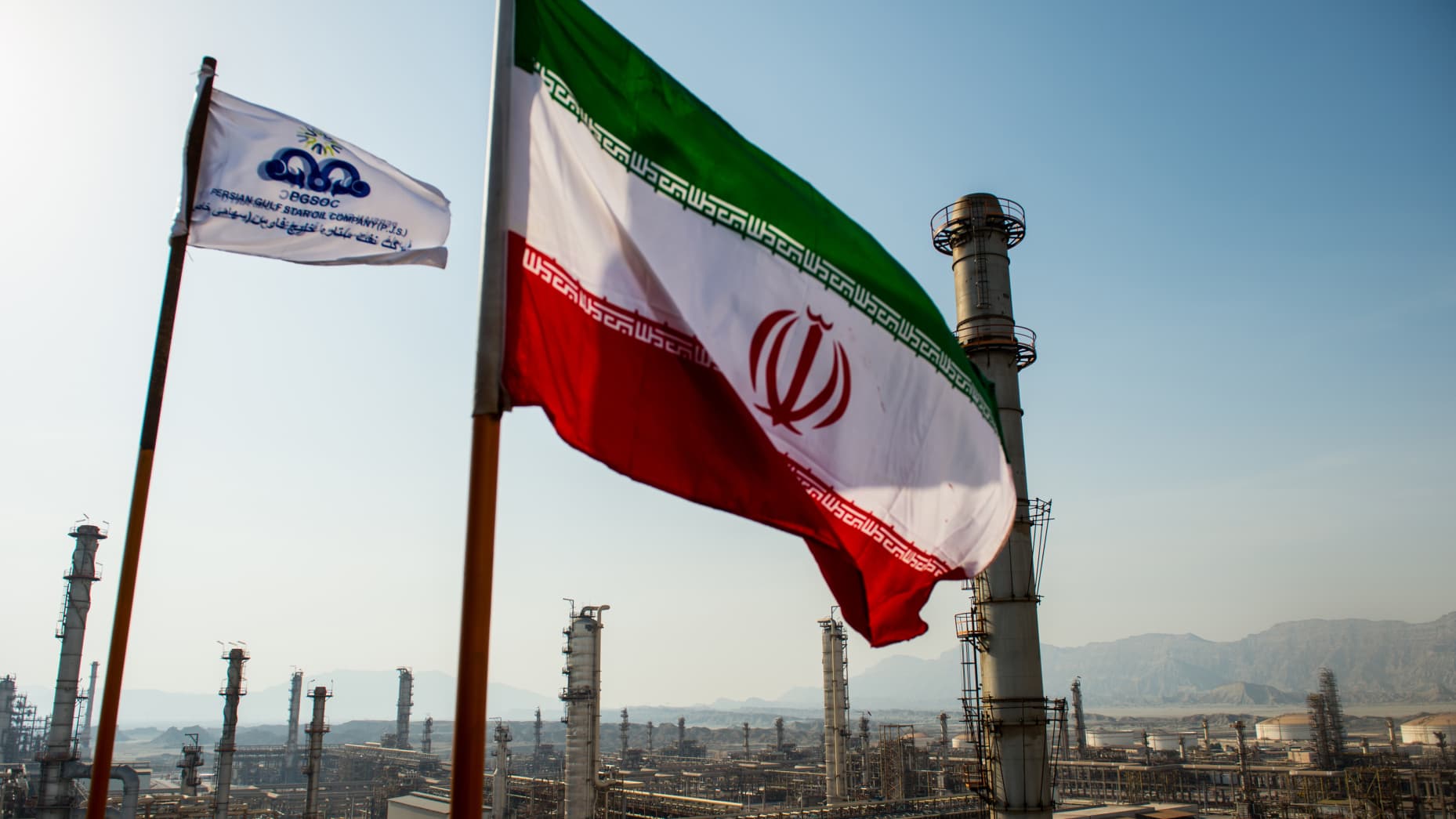 Courtesy: Investopedia
Courtesy: Investopedia
The Bank of England was in the news because of the ‘gold squeeze’- traders moving gold from London to New York to profit from the price arbitrage. An informal version of this is taking place between Bangladesh and India.
 Courtesy: President of Russia-Events website
Courtesy: President of Russia-Events website
Europe has reduced its reliance on Russian gas following the war in Ukraine, and its chief supplier Russia is mired in western sanctions. What does it mean for Russia? It has certainly changed the fortunes for American gas to be sold to Europe: as of 2023, the US had become the world’s top exporter of gas.
 Courtesy: Bloomberg
Courtesy: Bloomberg
Bangladesh faces an energy crisis due to increasing prices, depleting foreign exchange reserves and political instability. Amit Bhandari, Senior Fellow, Energy, Investment and Connectivity, Gateway House, speaks with Rayhan Rashid on an episode of the South Asia Democratic Forum’s podcast on challenges affecting Bangladesh’s energy sector and potential solutions such as diversification of energy sources, a shift toward low-carbon energy production, and regional integration.
 Courtesy: Indian Express
Courtesy: Indian Express
On December 18, India’s National Security Advisor Ajit Doval and Chinese Foreign Minister Wang Yi met in Beijing. This came two months after Prime Minister Modi’s bilateral meet with President Xi on the sidelines of the BRICS Summit in Russia. Lt Gen S L Narasimhan, Adjunct Distinguished Fellow, National Security and China Studies, discusses recent developments in India-China ties and how New Delhi can manage its complex relationship with Beijing.
 Courtesy: Business Standard
Courtesy: Business Standard
The advent of the pro-oil Donald Trump in the U.S. and the strong pushback by developing countries to the unsatisfactory COP29 proposals, has opened opportunities for India in the energy sector. Instead of investing in overseas oil facilities, India will be better served as a financial investor in listed companies in large economies. This approach will help forge closer ties with strategic partners.
 Courtesy: Ada Derana
Courtesy: Ada Derana
Sri Lanka’s new President Dissanayake is facing his first big test – rising rice prices. High import tariffs and a powerful rice mafia given to hoarding of the staple, are compounded by other market distortions. Can he balance urban consumer demands with rural farmer interests? Either way, his options are limited.
 Courtesy:
Courtesy:
On October 31, Adani Power halved the electricity supply to Bangladesh, owing to outstanding dues. Bangladesh’s already weak economy has become worse under the new regime, with the country running short of funds to pay for imports of fuel and electricity.
 Courtesy:
Courtesy:
In the backdrop of the Shanghai Cooperation Organisation summit being held in Islamabad this week, is a restive state and peoples. Three high profile attacks in just a week were followed by a show of defiance from the large Pashtun community, demanding political equity – but also electricity concessions. The military has been stepping in to resolve commercial power deals, underlining the criticality of this issue in Pakistan.
 Courtesy:
Courtesy:
A potential escalation of the Iran-Israel conflict will affect energy supplies globally. Tempering the conflict will help the U.S. keep petrol prices down before its election, protect the oil and gas export traffic in the Persian Gulf, keep the surreptitious Iran-Malaysia-China oil sales going, and prevent a major headache for India, which imports over 80% of its oil.
 Courtesy:
Courtesy:
The past week has been eventful for India’s Neighbourhood First policy, with the External Affairs Minister’s visit to Sri Lanka and the state visit of the President of Maldives to India. Rajiv Bhatia, Distinguished Fellow, Foreign Policy Studies, Gateway House and Amit Bhandari, Senior Fellow, Energy, Investments and Connectivity, Gateway House, analyse India’s regional outreach and recent economic and political changes in the subcontinent.

 Courtesy: Investopedia
Courtesy: Investopedia
 Courtesy: President of Russia-Events website
Courtesy: President of Russia-Events website
 Courtesy: Bloomberg
Courtesy: Bloomberg
 Courtesy: Indian Express
Courtesy: Indian Express
 Courtesy: Business Standard
Courtesy: Business Standard
 Courtesy: Ada Derana
Courtesy: Ada Derana
 Courtesy:
Courtesy:
 Courtesy:
Courtesy:
 Courtesy:
Courtesy:
 Courtesy:
Courtesy:
